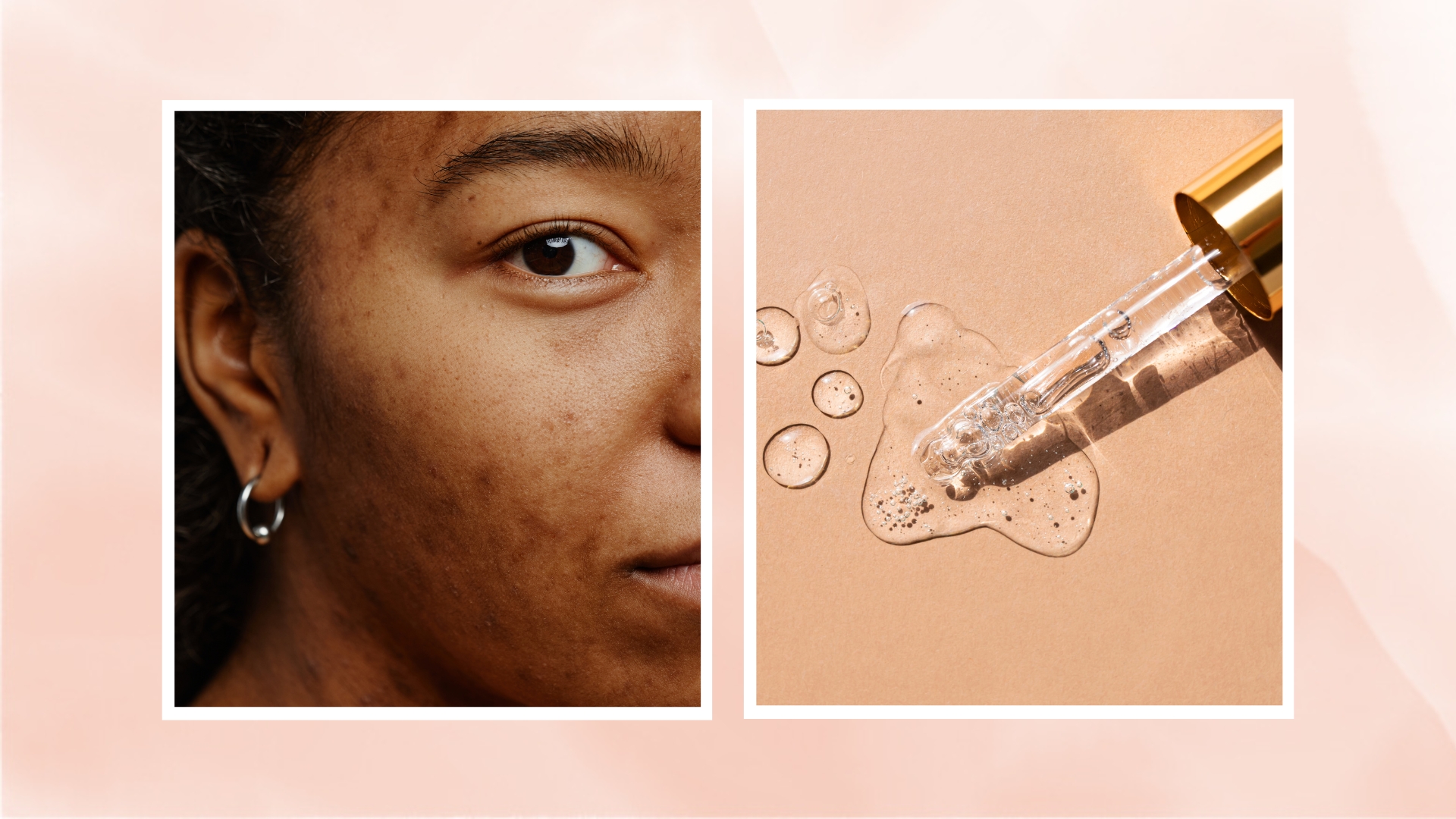
Retinol is a staple ingredient for many largely thanks to its anti-ageing and exfoliating prowess but saying that, can you use retinol for acne? If you're considering the potent active for blemishes and breakouts, here's what you need to know...
Blackheads, whiteheads, pimples and cysts, while spots used to be seen as just an awkward teen 'right of passage,' now growing numbers of adult women are affected, too. If your skin is experiencing acne, then you've probably tried almost every complexion-clearing lotion, potion, and cream out there; spot stickers, salicylic acid, benzoyl peroxide etc. When nothing appears to work, it can be incredibly frustrating. "Breakouts and blemishes can make you feel out of control and crippled with self-consciousness" says cosmetic dermatologist, Dr. Sam Bunting. "The good news is that with the right knowledge and the right products, you can transform your skin and change your life." This is where the best retinol creams and serums come in.
The potent ingredient is known for its powers of exfoliation but to help you avoid the various retinol mistakes and pitfalls, we've asked the experts to outline if and how retinol can treat acne.
Can you use retinol for acne?
Like with all skincare ingredients, it's important to get clued in on how they work with your skin type. Those with dry skin, for instance, could benefit from one of the best hyaluronic acid serums, while those with congested pores might favour a salicylic acid product.
Retinol is a go-to for many with texture and fine lines but if you're considering one of the best retinols for beginners to use on acne-prone skin, it's crucial to understand what the ingredient is, what it does and how to use it - all of which, we've put to the experts. Before we dive into all of that though, let's first start right at the beginning...
What is acne?
"Acne is a very common skin disease that occurs when your hair follicles become blocked with dead skin cells and oil from our sebaceous glands," explains Dr. Bunting. Common characteristics are swelling and redness, often showing up as papules (pimples that don’t contain pus), pustules (pimples that contain pus), or cysts.
Hormones tend to be the most common cause of acne in adult women; pregnancy, after stopping birth control pills, and during the perimenopause and menopause, being the main culprits. But it can also be triggered by stress and genetics.
How can retinol help acne?
Retinol is a form of vitamin A, belonging to the family of retinoids that is used in skincare products. Retinol is commonly thought of as an anti-ageing superhero, due to its ability to promote cell turnover, fending off fine lines, creating a youthful glow and improving skin texture.
But actually, retinol does so much more. With consistent use, this powerhouse ingredient can leave your skin smoother and clearer. Unlike salicylic acid, which exfoliates dead skin cells, and benzoyl peroxide, which diminishes acne-causing bacteria, retinol works from the inside out. It kickstarts cell turnover and keeps dead skin cells on the move and helps to keep pores clear.
Jennifer Lozano, R&D Specialist at Minerva Research Labs UK, explains how:
- Unclogs Pores: Retinol works by promoting cell turnover, which helps prevent the formation of comedones (clogged pores), including both whiteheads and blackheads. By encouraging the shedding of dead skin cells, retinol prevents pores from becoming blocked and reduces the likelihood of acne breakouts.
- Regulates Oil Production: Retinol helps regulate sebum (oil) production in the skin, which can be a contributing factor to acne. By controlling oil production, retinol can help prevent the development of excess oil that can lead to clogged pores and acne lesions.
- Reduces Inflammation: Retinol has anti-inflammatory properties that can help reduce redness and inflammation associated with acne. It can also help calm active breakouts and minimise the severity of acne lesions.
- Promotes Healing: Retinol aids in the repair and regeneration of skin cells, helping to heal existing acne lesions and prevent the formation of new ones. It can also help fade post-inflammatory hyperpigmentation (dark spots) left behind by acne.
- Prevents Microcomedone Formation: Retinol can target microcomedones, which are the precursors to acne lesions. By preventing the formation of microcomedones, retinol helps stop the acne cycle before it starts, leading to clearer, healthier skin over time.
Understanding retinol
However, it’s not all rainbows and unicorns when using retinol as an acne treatment. There are caveats; "your skin needs time to adjust to it," says super facialist, Teresa Tarmey. "This adaptation period is called retinization."
During this time, your skin may react sensitively to the strength of the retinol, so it's important to consider the percentage of retinol. "You may experience side effects such as redness, irritation, burning, itching, and excessive exfoliation of the skin when you start using retinol products." However, these side effects are temporary and can be minimised if you follow some simple rules.
- Over the counter retinol products usually contain between 0.25% and 1.5% retinol. The strength that you need really depends on what your skin can tolerate. If you don’t experience any irritation, you can increase the dose. To treat mild to moderate acne, choose somewhere between 0.1% and 0.3% in concentration. If you have sensitive skin, start off with a lower dose first.
- Begin by using a pea-sized amount once a week for two weeks. Then, slowly move up to twice a week until there are no signs of irritation. Once you've built up a tolerance, it's safe to increase your usage to every other night or every night indefinitely.
- Because active vitamin A is excellent at exfoliating your skin, you will no longer have a thick layer of dead skin cells shielding you from the sun’s rays, so make sure you use a high factor sunscreen.
How long will retinol take to work?
Don’t expect results overnight, retinol takes it time, but be consistent and it will be worth the wait. Once you've found a retinol your skin likes and you’ve stuck to a regular skincare routine, you will notice subtle improvements in just a few weeks. However, your skin cells take about six weeks to turnover, so you’ll really notice the benefits in two to three months.
Does retinol help with acne scarring?
"Acne scars are caused by inflammation and damage to the hair follicle and its associated oil-producing gland," explains Dr. Derrick Phillips, Consultant Dermatologist at OneWelbeck Skin Health Clinic. "As the inflammation settles, the skin produces collagen to help repair the tissue damage." If not enough collagen is produced, depressed scars or pitted skin can form. However, if too much is created, raised scars can form.
The inflammation caused by acne may also result in areas of uneven skin tone. "In skin of colour, dark marks may also develop as the inflammation resolves," explains Dr Phillips. By promoting cell turnover, retinol can boost both skin texture and tone changes, and with ongoing use smooth uneven texture and fade dark areas.
Our picks for the best retinol for acne-prone skin
Now, if you're keen to add an acne product to your skincare arsenal, here are six picks from brands including Perricone MD and No7...
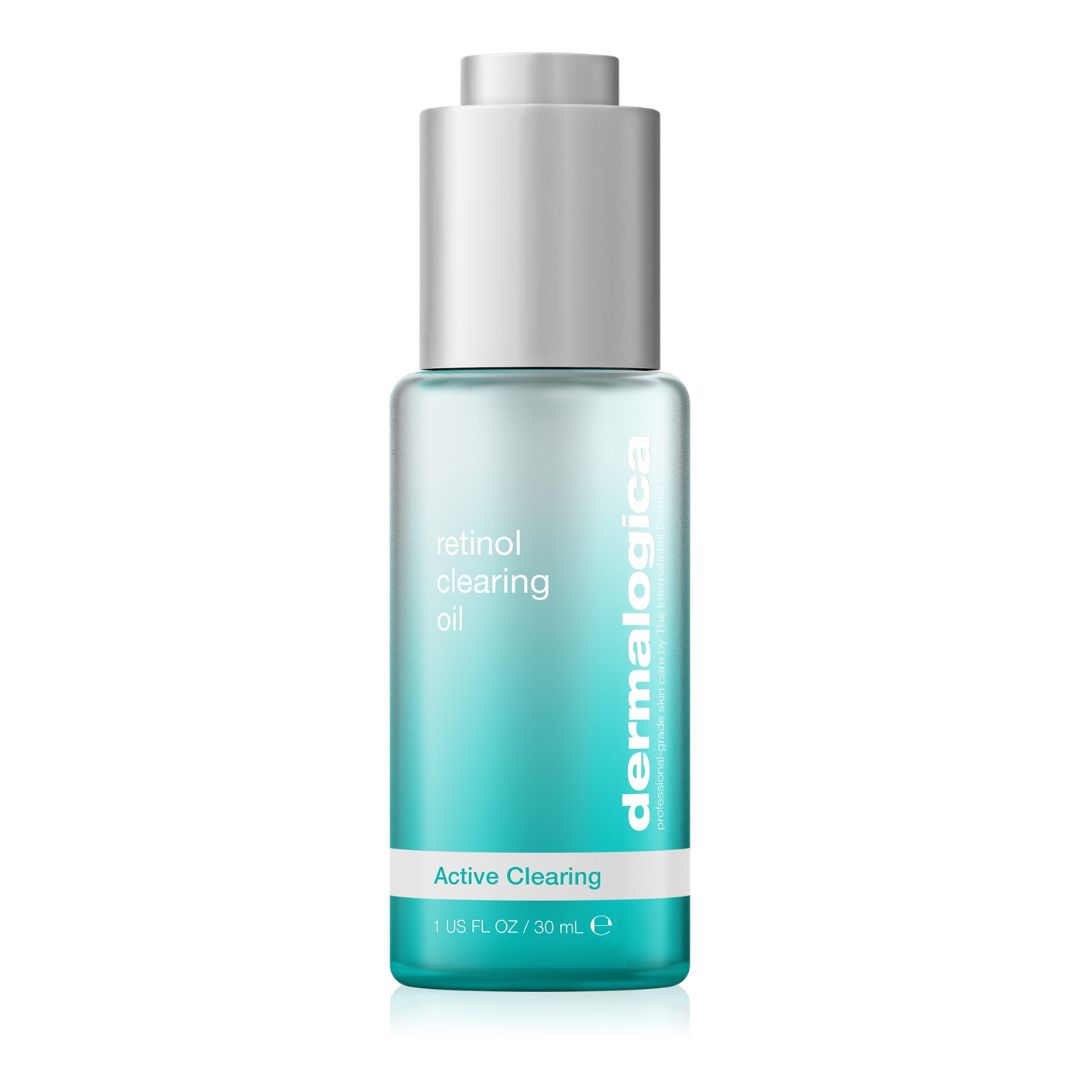
RRP: £85
A soothing overnight oil that helps to target breakouts and signs of premature skin ageing.
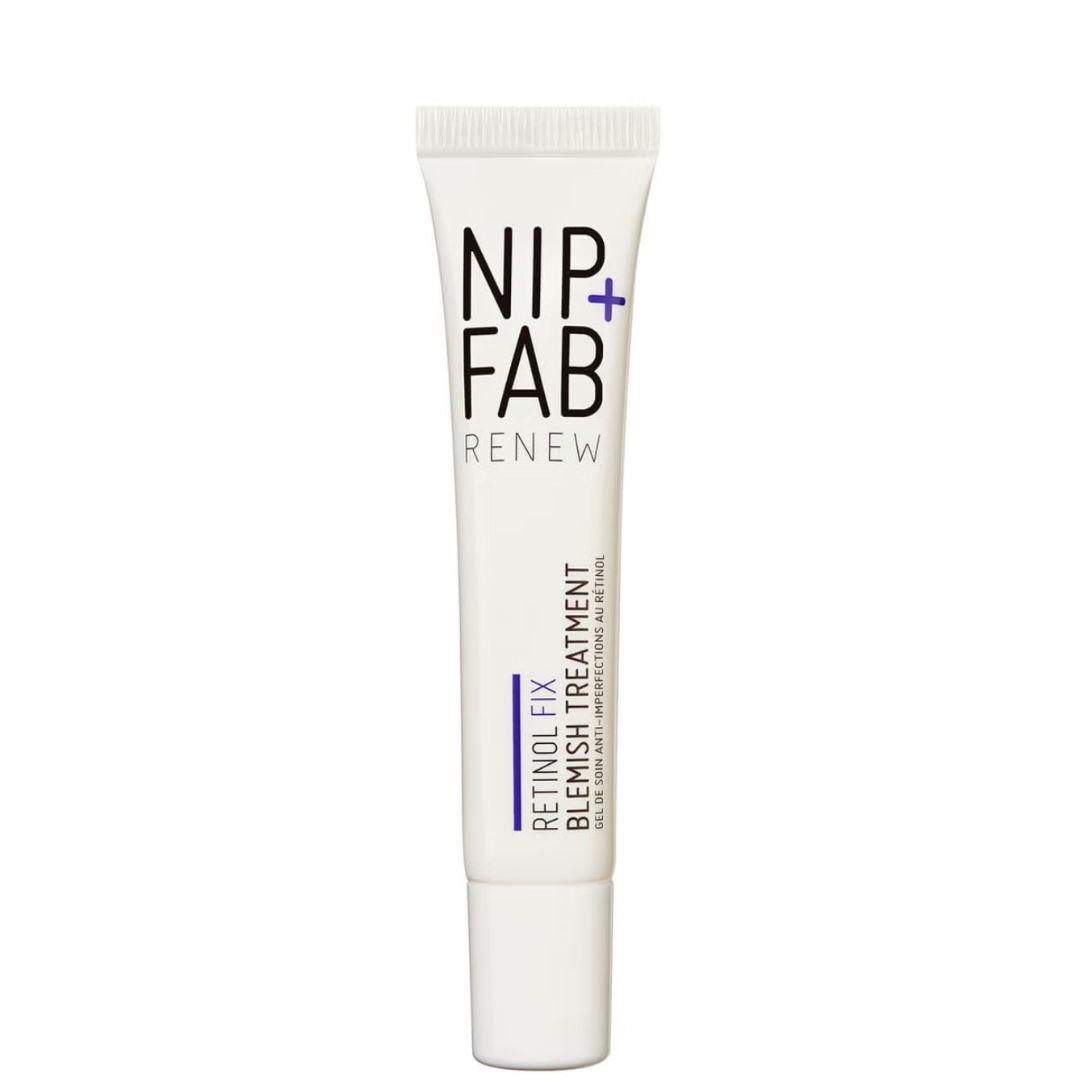
RRP: £19.95
This gel offers time-release retinol with a concoction of soothing ingredients. Apply to blemish-prone areas.
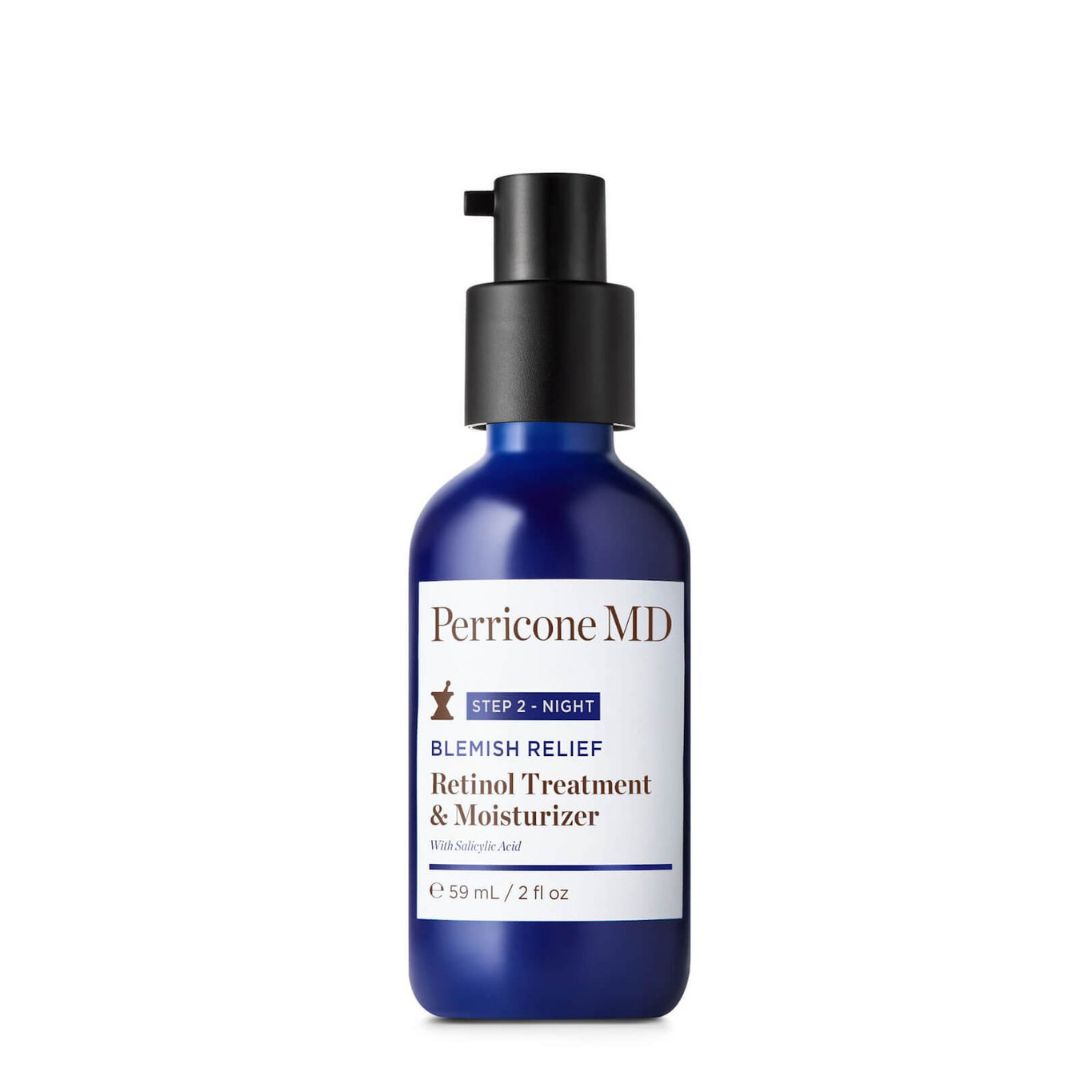
RRP: £47
Prone to build-ups of excess oil? This formula will diminish the appearance of blemishes without drying your skin too much.
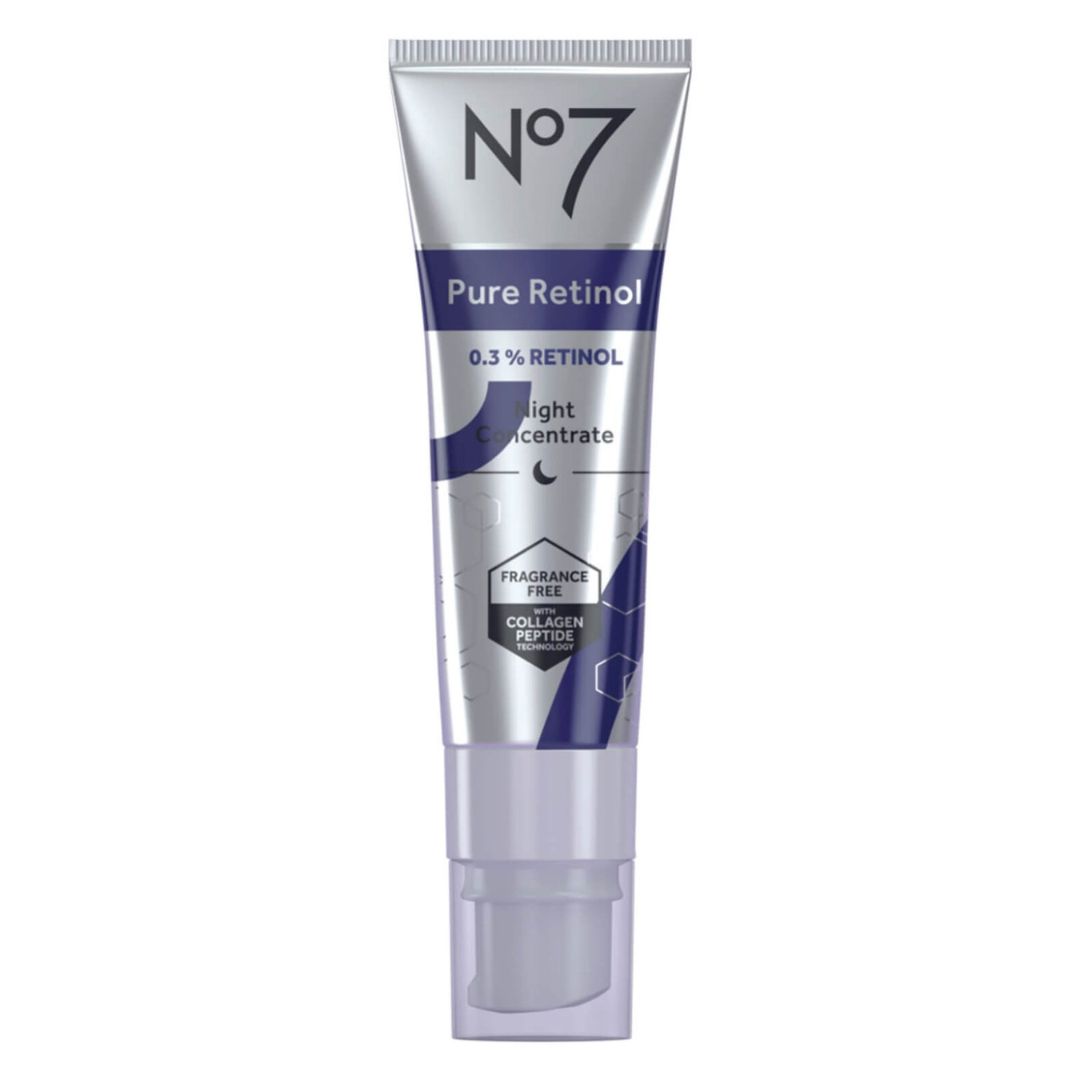
RRP: £34.95
With two clever age-defying technologies, Matrixyl 3000+ and 0.3% Pure Retinol this will control spots and offer anti-ageing benefits too.
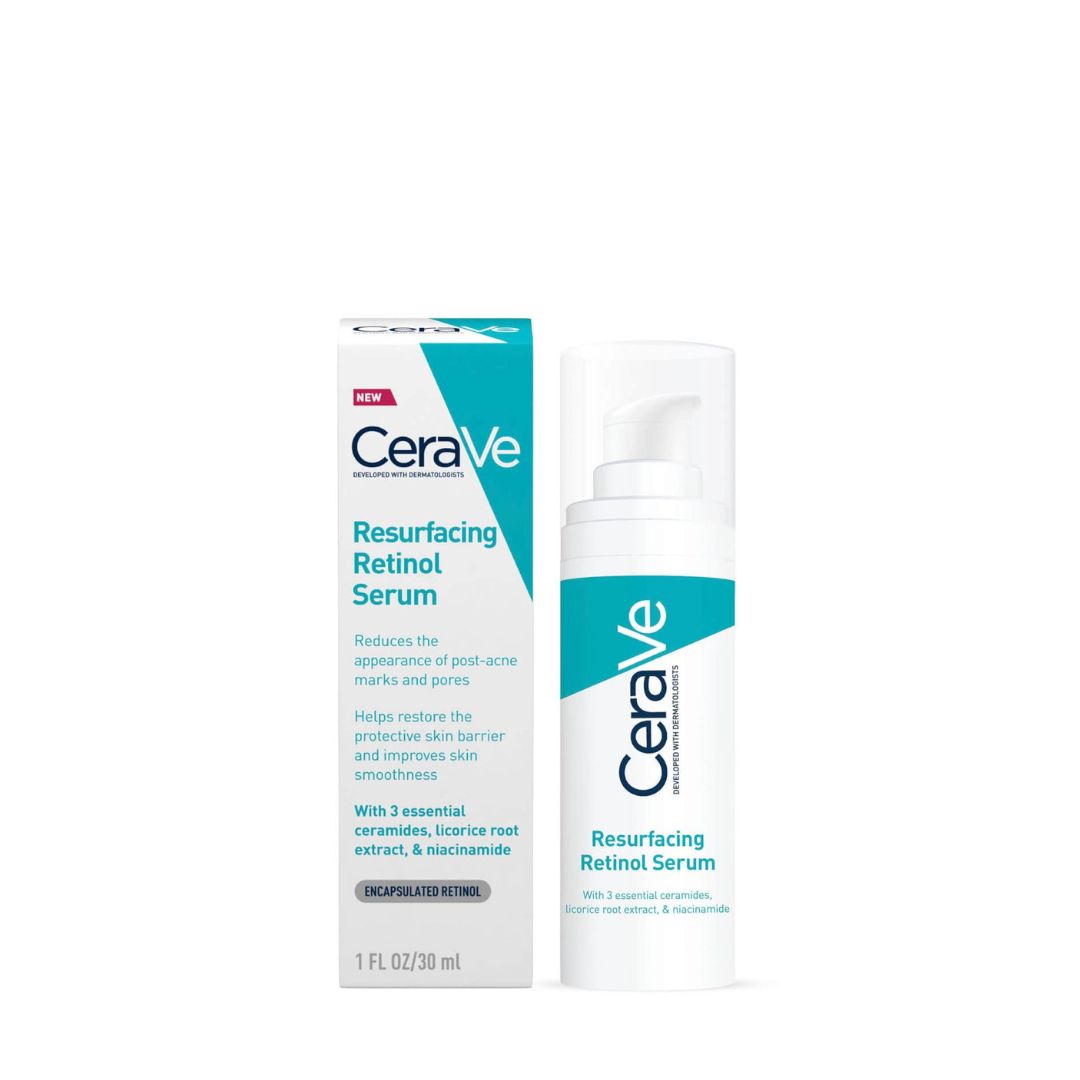
RRP: £23
This CeraVe serum fades stubborn marks by resurfacing and refining skin via encapsulated retinol and barrier-restoring ingredients.

RRP: £48
A gel that restores the skin’s barrier health while tackling stubborn blemishes and shrinking pore size.







